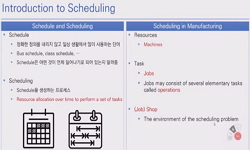In most processes, robust control performance is required even if a disturbance occurs to ensure stable performance in the steady-state operation. Cascade control needs to be applied to ensure control performance even during disturbances. However, whe...
http://chineseinput.net/에서 pinyin(병음)방식으로 중국어를 변환할 수 있습니다.
변환된 중국어를 복사하여 사용하시면 됩니다.
- 中文 을 입력하시려면 zhongwen을 입력하시고 space를누르시면됩니다.
- 北京 을 입력하시려면 beijing을 입력하시고 space를 누르시면 됩니다.

A proposal for robust control performance on cascade control using IMC-based PID control and genetic algorithm
한글로보기https://www.riss.kr/link?id=A108495276
- 저자
- 발행기관
- 학술지명
- 권호사항
-
발행연도
2023
-
작성언어
English
- 주제어
-
등재정보
KCI등재
-
자료형태
학술저널
-
수록면
23-33(11쪽)
- 제공처
-
0
상세조회 -
0
다운로드
부가정보
다국어 초록 (Multilingual Abstract)
Simulations were carried out to confirm the control performance using these controllers. As results of the simulation, this proposal presented better results with nominal models, ±10% parametric uncertainties for the processes, and a disturbance with a twice gain, for both setpoint tracking and disturbance rejection.
In most processes, robust control performance is required even if a disturbance occurs to ensure stable performance in the steady-state operation. Cascade control needs to be applied to ensure control performance even during disturbances. However, when cascade control is applied, the design and tuning of the primary controller involves the secondary control loop and the primary process and becomes a form of a higher-order equation. The purpose of this paper is to propose a simple method of the design and tuning for controllers without any complicated structures. In this proposal, the secondary control loop was designed and tuned by the IMC-based PID control considering the cancellations of the poles and zeros between a controller and the process. A genetic algorithm was used to design the best performance in the primary controller. For the performance comparison of the proposal, controllers tuned by the IMCbased PID control and direct synthesis and the fine-tuned controller by the Tyreus–Luyben method were applied in the simulation.
Simulations were carried out to confirm the control performance using these controllers. As results of the simulation, this proposal presented better results with nominal models, ±10% parametric uncertainties for the processes, and a disturbance with a twice gain, for both setpoint tracking and disturbance rejection.
동일학술지(권/호) 다른 논문
-
- 한국마린엔지니어링학회
- 박성우
- 2023
- KCI등재
-
- 한국마린엔지니어링학회
- Zitong Qu
- 2023
- KCI등재
-
Resonant frequency tuning of wave energy converters using variable moment of inertia
- 한국마린엔지니어링학회
- 장선준
- 2023
- KCI등재
-
Performance evaluation of Ocean Thermal Energy Conversion(OTEC) stabilization based on risk analysis
- 한국마린엔지니어링학회
- 임승택
- 2023
- KCI등재





 DBpia
DBpia






